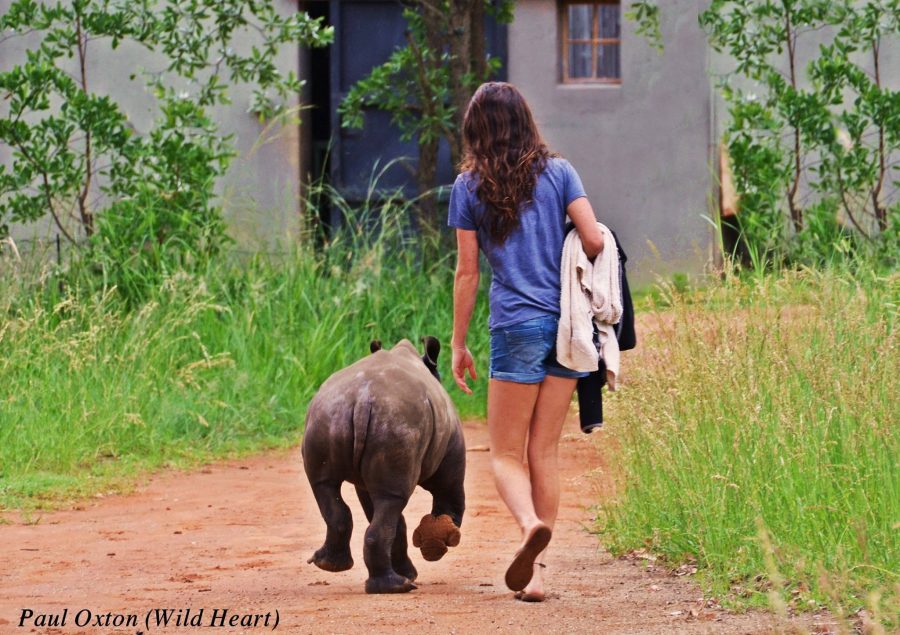
Rhino Orphans Sleep Under Blankets in South Africa
Little rhino orphans in South Africa have been snuggling up under the cuddly covers of blankets, knitted especially for them by kind donors. It’s a beautiful sweet sight in a tragic situation. There shouldn’t be rhino orphanages… but thanks to not such great humans poaching and killing adult rhinos for their horns, wonderful kind humans have had […]
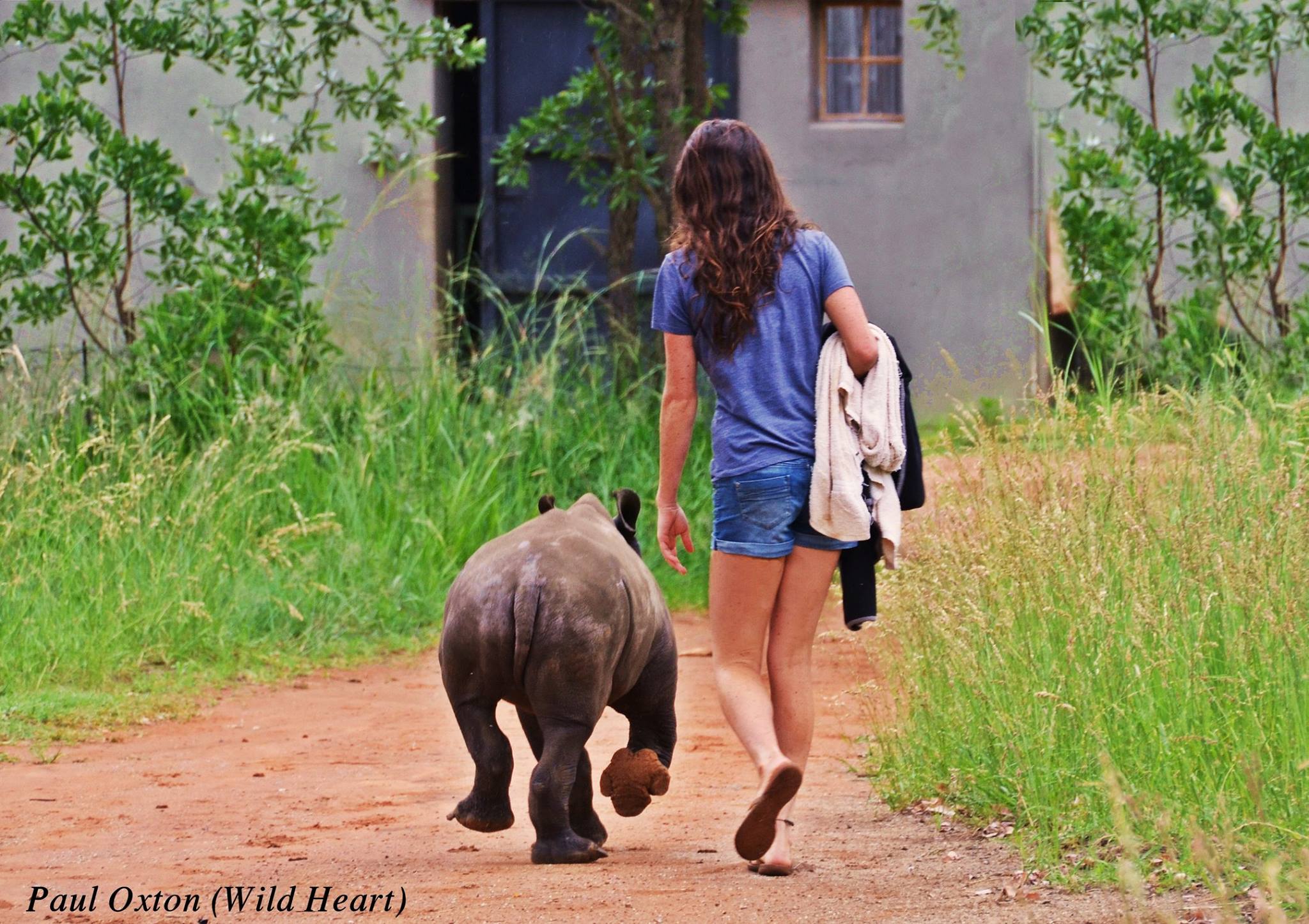
Little rhino orphans in South Africa have been snuggling up under the cuddly covers of blankets, knitted especially for them by kind donors. It’s a beautiful sweet sight in a tragic situation.
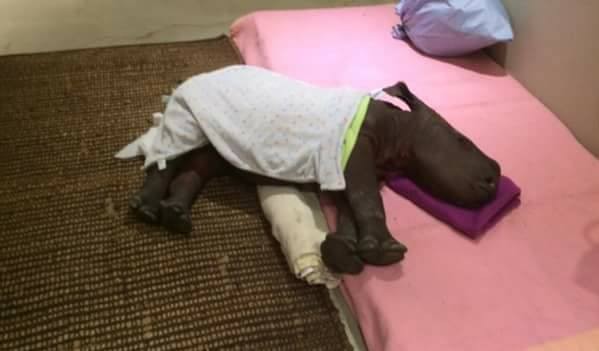
There shouldn’t be rhino orphanages… but thanks to not such great humans poaching and killing adult rhinos for their horns, wonderful kind humans have had to step in and take care of the calves left behind.
While the videos and photos on this page are mainly very cute, what these kind carers and vets witness is devastating. Earlier this month Dr Dave ‘Wild Vet’ Cooper reported on the rescue of a 2-year-old calf whose mother had been killed (along with six others on a full moon night), and whose face had been hacked as poachers tried unsuccessfully to remove his little horn. Sadly the calf passed away a week later, not because of the “horrific facial mutiliation… but [because of] the bullet wound that penetrated her spine.”
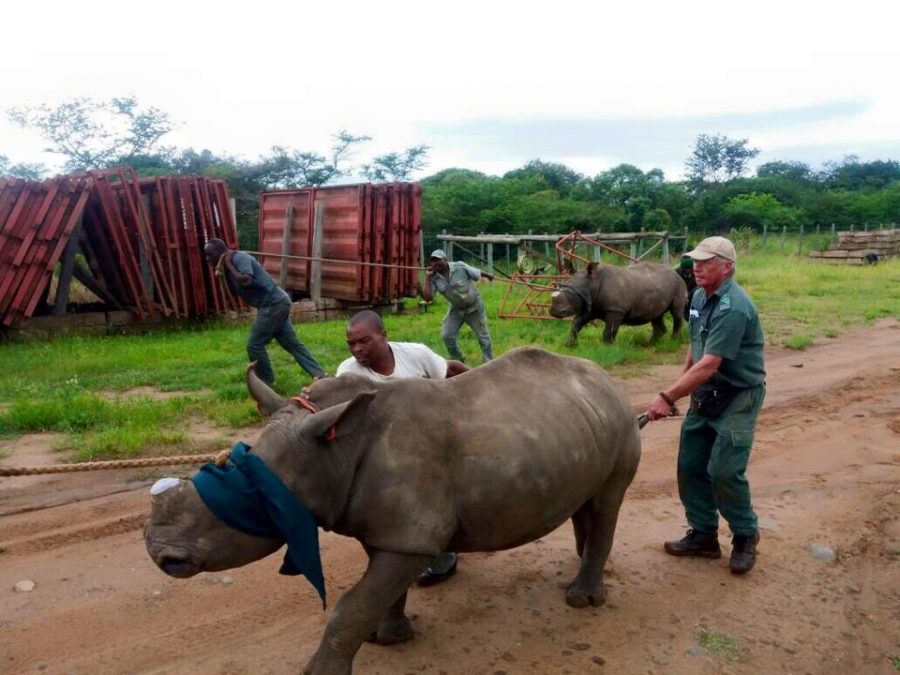
But yesterday Dr Cooper had happier news as a few older rhino orphans tasted freedom at last. See above. “Imagine their joy at having grass growing under their feet again!” he said.
The bond between carers and rhino orphans is incredible to witness. Karen Trendler, director of Thula Thula Rhino Orphanage, has gathered followers on social media as she relates the goings of the orphans in her care… which include two rhino – Makhosi and Isomiso – and a baby hippo Charlie. Karen is seen below, “sleeping on the job” when she was taking care of the calves when they were much younger.
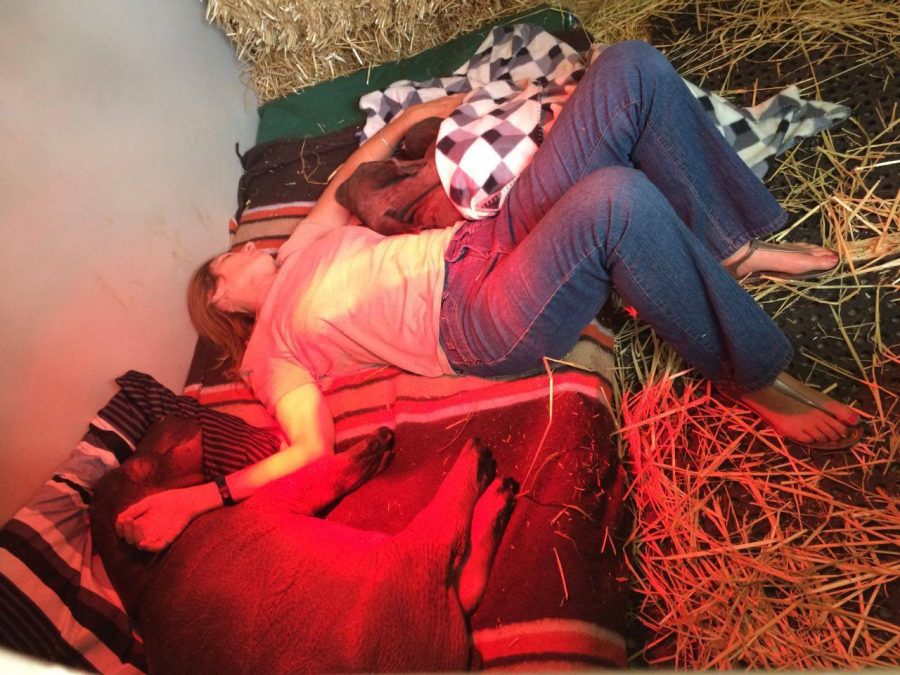
Today the three are slightly bigger and have finally learnt to sleep together. The photo below was taken last week. “It’s raining at the orphanage today,” wrote Karen. “Love this photo of Isomiso and Mahkosi looking out into the rain…”
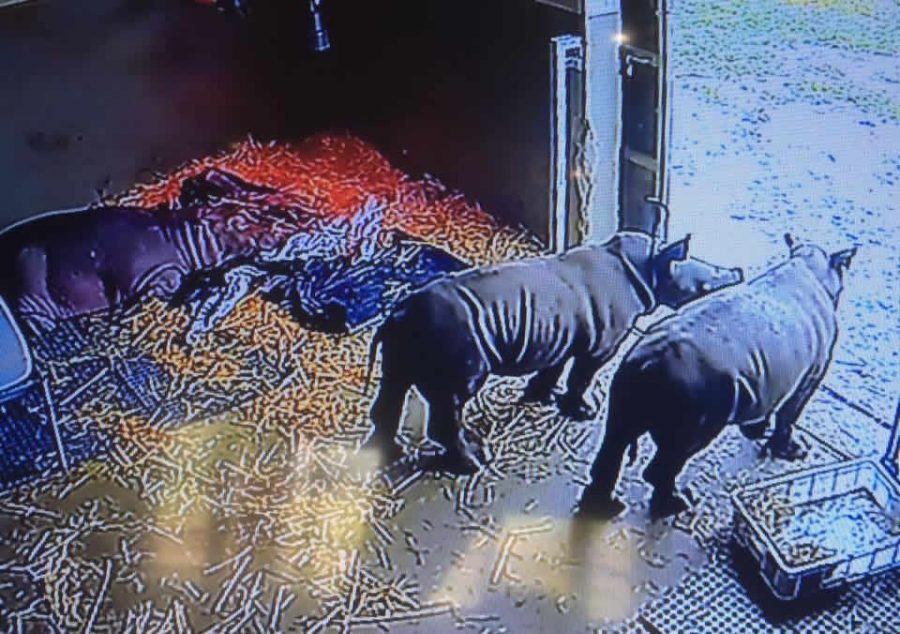
Karen explains that most baby rhino orphans need a blanket or two to give them extra warmth since they don’t have their mother as a “hot water bottle”. She told The Dodo: “The very sick, weak and young calves have trouble maintaining body temperature. Blankets not only keep them warm, but provide a feeling of security.”
A friend of Karen’s began a Facebook group Blankets for Baby Rhinos that encourages members to donate or knit blankets (or squares for quilts). As soon as the calf feels better, it then chooses soft sand and bedding straw instead.
Below is another heartwarming photo of caregiver Jamie returning from her daily walk with little rhino orphan Nandi, taken by Wild Heart Wildlife Foundation whilst delivering much needed supplies.
“A tragic start to her life because of poachers taking Nandi’s mother, but because of good humans, she has a chance for a future,” wrote Wild Heart.
 But the best photos are those of the orphans being returned to the wild, once they are ready.
But the best photos are those of the orphans being returned to the wild, once they are ready.
On Friday Stroop (rhino documentary film) uploaded this ‘Homecoming’ photo of a sub-adult rhino in South Africa being returned to its natural home… but with a twist of sadness.
In order to have the best chance of survival, “he must be dehorned and as much of the horn as possible is shaved down to try to keep his life from poachers,” say the Stroop filmmakers.
“The horn takes about two years to grow back, but some say that this new close shave method will help to slow that down.”
The good news is “18-months ago this orphan survivor was a baby. This was the moment they returned him home!”
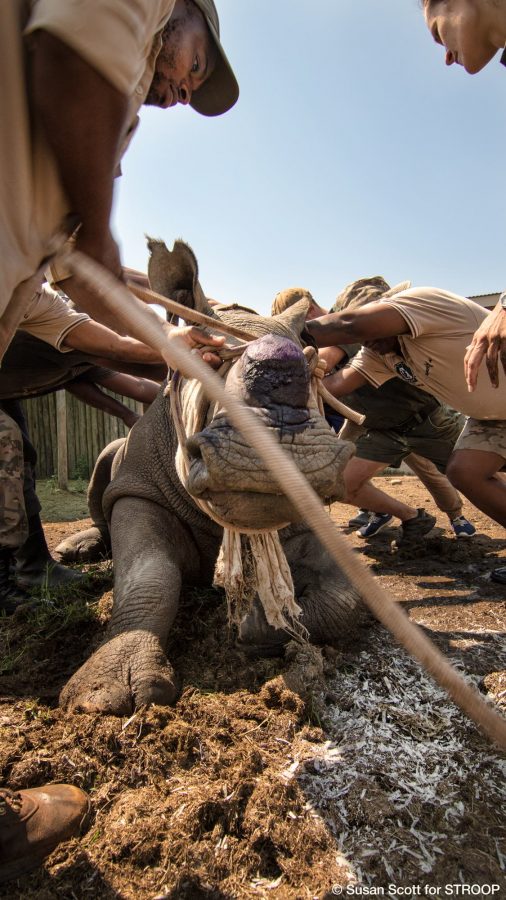
#HappyHomecoming!!! #NobodyNeedsARhinoHornExceptARhino #ThankYouRhinoCareGivers
MORE
- www.facebook.com/rhinoorphanage/
- www.facebook.com/stroopdiefilm/
- www.facebook.com/wildheartwildlifefoundation/